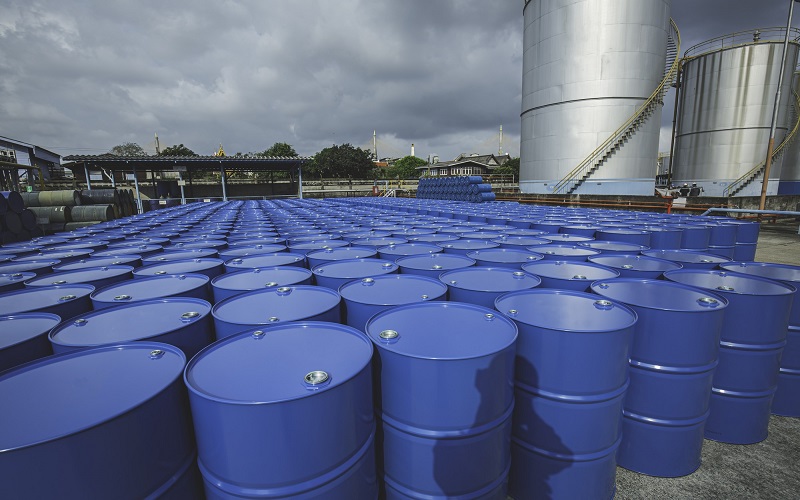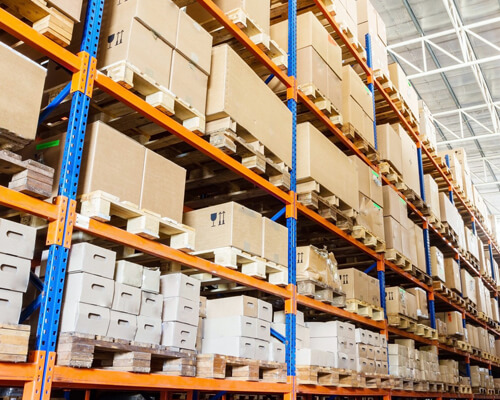- فارسی
- عربي
- English
How to Import Ethanol from Iran: A Complete Guide

Importing ethanol can be a crucial decision for businesses that rely on this versatile substance in their manufacturing processes. Whether you're in the pharmaceutical, personal care, fuel, or industrial sectors, sourcing ethanol from Iran presents numerous advantages. In this guide, we’ll explore why Iran is an ideal source for ethanol, how to navigate the import process, and the benefits and challenges associated with bringing this product into your country.
Understanding Ethanol and Its Uses
Ethanol, also known as ethyl alcohol, is a colorless, flammable liquid that has a wide range of industrial applications. It is primarily used as a solvent, fuel, and disinfectant, and is an essential ingredient in a variety of products like pharmaceuticals, cosmetics, and alcoholic beverages (in regulated forms).
Industries that benefit from ethanol include:
- Pharmaceuticals: As a solvent in medicines, tinctures, and syrups.
- Personal Care: Used in products like perfumes, deodorants, and hand sanitizers.
- Fuel: Blended with gasoline to create bioethanol, a renewable fuel alternative.
- Food & Beverages: Utilized in manufacturing and alcohol production (denatured ethanol for industrial use).
Understanding the versatility of ethanol will help you identify how it fits into your business’s operations and why importing it can streamline your processes.
Why Import Ethanol from Iran?
Iran is one of the largest and most cost-effective producers of ethanol in the Middle East. With its substantial agricultural output, natural gas resources, and established chemical manufacturing capabilities, Iran is a leading exporter of ethanol to various parts of the world.
Advantages of Importing Ethanol from Iran:
- Competitive Pricing: Iran offers ethanol at lower costs compared to many Western producers, making it an attractive choice for businesses looking to reduce expenses.
- High-Quality Production: Iranian suppliers maintain high production standards to meet international specifications, ensuring consistency in quality.
- Reliable Supply Chain: Iran has a well-established ethanol production infrastructure, providing a consistent supply to meet global demand.
- Strategic Location: Iran’s proximity to major shipping routes facilitates cost-effective and timely deliveries to Europe, Asia, and Africa.
By choosing to import ethanol from Iran, businesses can benefit from both cost savings and reliable product quality.

Legal and Regulatory Requirements for Importing Ethanol from Iran
Before importing ethanol from Iran, it’s crucial to understand the legal and regulatory requirements in your country. Different regions have different rules, and it’s essential to comply with both international trade laws and domestic import regulations to avoid delays or penalties.
Key Documentation Typically Required:
- Import Permits: Depending on your country’s regulations, you may need an import permit specifically for alcohol-based products like ethanol.
- Certificates of Origin: This ensures the product is sourced from Iran and meets all trade agreements.
- Customs Declarations: Provide detailed information about the ethanol, including quantity, value, and intended use.
- Safety and Quality Certifications: Documentation that confirms the ethanol meets international standards, such as ISO certifications.
Research the specific importation laws and consult with customs experts or legal advisors to ensure compliance with your country’s requirements.
Choosing a Reliable Ethanol Supplier in Iran
When importing ethanol from Iran, finding a reliable supplier is crucial. The supplier you choose will play a significant role in ensuring the quality of the product, the reliability of the delivery, and the overall smoothness of the import process.
What to Look for in a Supplier:
- Reputation: Look for a supplier with a solid reputation in the market and positive customer reviews. A reliable supplier will have a proven track record of fulfilling orders on time and meeting quality standards.
- Certifications: Ensure that the supplier holds relevant certifications such as ISO or GMP (Good Manufacturing Practice) to guarantee the quality and safety of their ethanol.
- Customer Support: A supplier that offers clear communication and helpful customer service can make your import process easier, especially when issues arise.
- Packaging and Shipping: The supplier should offer suitable packaging that meets shipping and safety standards, and they should be able to provide on-time delivery to your location.
One such trusted supplier is MehradTrade, which specializes in providing high-quality ethanol sourced from Iran with efficient logistics and compliance with international standards.

The Import Process: Step-by-Step Guide
Importing ethanol from Iran involves several crucial steps to ensure smooth and efficient delivery. Here’s a detailed breakdown of each stage:
1. Select Your Supplier
Carefully research and select a trusted ethanol supplier, such as MehradTrade. Contact them to discuss your needs, including ethanol specifications, quantities, pricing, and delivery timelines. Ensure that they can meet your quality standards and provide the necessary documentation for compliance with international regulations.
2. Sign the Contract
Once the supplier is chosen, negotiate and sign a formal contract. This agreement should clearly outline terms such as pricing, delivery schedules, quality checks, payment methods, and dispute resolution processes. Both parties must fully understand the terms to prevent misunderstandings later in the import process.
3. Arrange Shipping
After finalizing the contract, arrange the most suitable shipping method (e.g., sea or air freight). Coordinate with the supplier to organize the export paperwork, including the bill of lading and customs declarations. Shipping terms like Incoterms should also be clarified to ensure responsibility is well-defined throughout the process.
4. Clear Customs
Upon arrival, work closely with customs brokers to ensure your ethanol shipment clears smoothly. Provide the required documentation, such as the certificate of origin, import permits, and safety certifications. Pay any applicable duties, taxes, and fees to avoid delays at the border and ensure compliance with local laws.
5. Receive and Inspect the Goods
Once your shipment has cleared customs, arrange for delivery to your warehouse or facility. Upon arrival, inspect the ethanol to confirm it matches the agreed specifications and quality standards. Check the packaging for any signs of damage or leakage, as ethanol must be safely stored and handled.
Logistical Considerations for Ethanol Importation
Shipping ethanol internationally requires careful planning due to the chemical’s flammable and volatile nature. Several logistical factors need to be considered to ensure safe and efficient transport.
Key Logistical Considerations:
- Shipping Routes: Select the most efficient shipping routes based on the origin in Iran and your destination. Ports in the Persian Gulf offer convenient access to major international shipping lanes.
- Packaging and Safety: Ensure that the ethanol is packaged correctly to prevent leakage or contamination. Ethanol should be transported in containers that comply with international safety standards.
- Storage and Handling: Once the ethanol arrives, ensure that your facility is equipped to store it safely. Ethanol should be stored in a cool, well-ventilated area to prevent accidents or degradation.
Benefits of Importing Ethanol from Iran
There are many reasons why businesses opt to import ethanol from Iran, from cost benefits to high-quality supply chains.
Advantages Include:
- Cost Efficiency: Iran’s competitive pricing allows businesses to save on procurement costs, making it ideal for large-scale operations.
- Reliable Supply: With robust production facilities and international trade experience, Iranian suppliers can provide a steady supply of ethanol, even during times of high demand.
- High-Quality Products: Iran’s ethanol meets international standards, ensuring consistency and safety across various industries.
- Strategic Location: Proximity to key shipping routes offers faster delivery times and lower transportation costs.
Challenges When Importing Ethanol from Iran
While importing ethanol from Iran offers many advantages, there are certain challenges that businesses may face.
Common Challenges Include:
- International Sanctions: Depending on the geopolitical situation, some countries may face restrictions on importing from Iran. It's important to stay informed on current trade sanctions.
- Payment and Currency Issues: Currency exchange rates and financial transactions may pose challenges due to Iran's restricted access to global financial systems.
- Customs Delays: Depending on the country’s regulations, there might be customs clearance delays or additional paperwork requirements.
By partnering with a trusted supplier like MehradTrade, these challenges can be mitigated through proper planning and expert guidance.
Conclusion
Importing ethanol from Iran can be a strategic move for businesses looking for cost-effective, high-quality ethanol for industrial applications. By understanding the import process, complying with regulations, and choosing a reputable supplier like MehradTrade, you can streamline your import operations and ensure consistent product quality. While there may be some challenges, the benefits far outweigh the risks, making it a worthwhile endeavor for companies across various industries.
Book a Consultation
Please enter your information to book a consultation.





